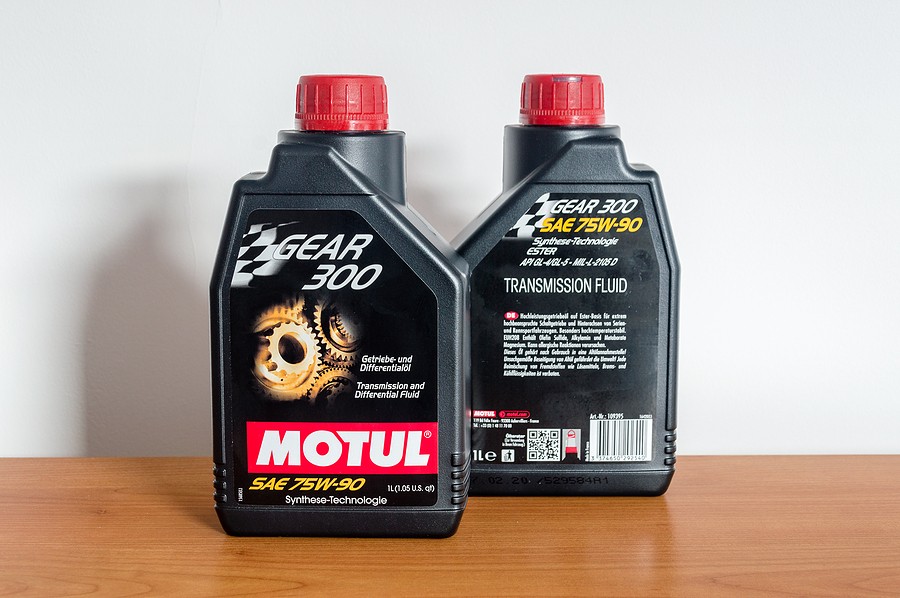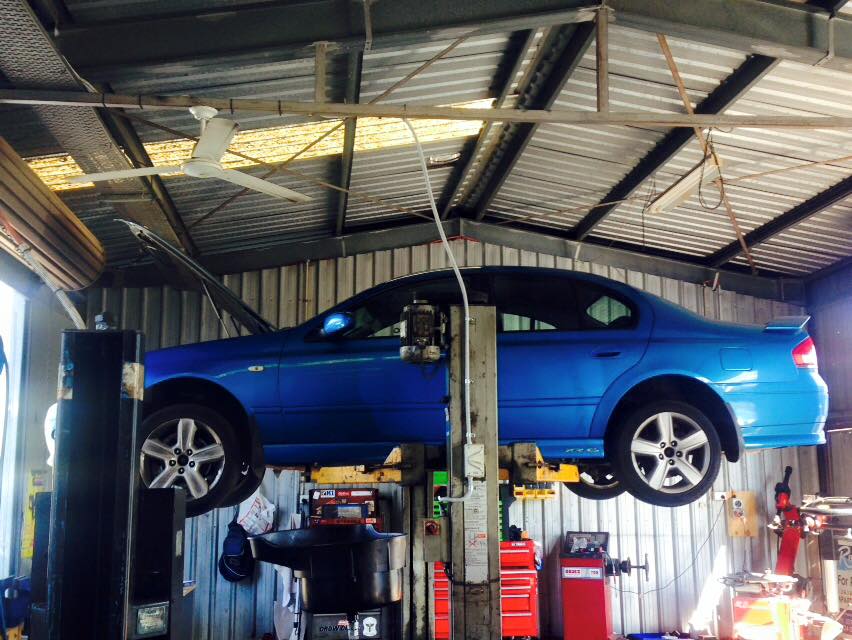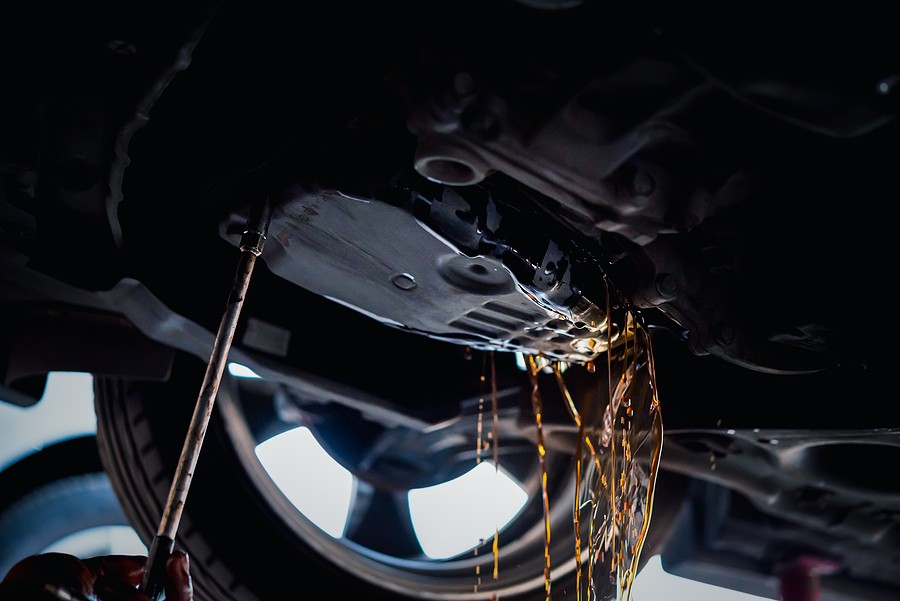Answering the question “do you need to change the transmission fluid” is extremely important to prevent major transmission problems. Here are the common symptoms of a bad transmission fluid indicating that you must change it:
- Dirt and contaminants in the transmission fluid
- Weird whining noises
- Slipping gears
- Difficulties reversing
- Engine overheating
- Grinding noises
Your vehicle's transmission is a core component, and it's responsible for transferring the energy from the engine to the wheels in a way that does not overconsume the engine's energy when you drive at low or high speed.
It's important to maintain the transmission all the time, and one of the first things that you must understand is the importance of the transmission fluid. The transmission fluid plays a lot of roles. That your engine cannot live without it. However, do you need to change the transmission fluid?
This article provides you with all the details you need to know about the importance of the transmission fluids, whether you must change it or not, and how often you need to change it, if any.

What is the transmission fluid, and what does it do?
The transmission fluid is one of the many fluids in your vehicle. This fluid is responsible for many jobs, including lubricating the transmission, cooling the transition down, preventing any oxidation, maintaining the fluid pressure, preventing gross, and others.
Depending on your transmission type, sometimes the transmission fluid plays a role in how the transmission operates. In other words, if you're driving a transition that relies on the hydraulic pressure to operate, then maintaining the transmission fluids at the optimum level is essential.
As you might notice, the transmission fluid is not a minor component. Instead, it is something you must maintain all the time.
Over time of use, the transmission fluid might break down or collect some rust or degree as it runs around the transmission. Therefore, if you've ever asked yourself, “do I need to change the transmission fluid?” The short answer is yes whenever you notice any of the sometimes indicating a bad transmission fluid.
How often should you change the transmission fluid?
Changing the transmission fluid should happen at a certain interval depending on what's specified in your vehicle owner’s manual. Typically, it would be best to change the transmission fluid depending on the transmission type.
For example, if you're driving a vehicle equipped with a manual transmission, you'll have to replace the transmission fluid once every 30,000 to 60,000 miles. However, if you're driving a vehicle equipped with an automatic transmission, you'll need to change the fluids once every 60,000 to 100,000 miles.

Do you need to change the transmission fluid? Symptoms of a bad transmission fluid
As you might notice, the answer to whether you need to change the transmission fluid is always a yes, depending on the fluid condition. While there are some threshold ranges for when you should change the transmission fluid, there are some symptoms that could indicate a bad transmission fluid prematurely pure
Whenever you notice any of the following symptoms, you must consult your mechanic and have him inspect the transmission fluid because it's most likely that you'll need transmission fluid change before hitting the threshold we talked about:
1. Dirt and contaminants in the transmission fluid
The first and most common symptom indicating that your fluid is due for change is noticing some dirt or contaminants on the transmission floor. You can perform a quick visual inspection and look at the fluids. If you see some small chips of rust or debris running through the transmission fluid, it is a clear indication that you need to flush it out and replace it with a fresh one.
When the transmission carries a lot of contaminants and debris, it won't work as it should because everything will be impacted and the way the fluids operate will not be the same. For instance, additional pieces of rust in the transition flow can significantly impact the overall pressure in the system, and therefore it will impact the way you operate the transmission.
2. Weird whining noises
As a rule of thumb, automotive experts always recommend that you take it seriously whenever you notice any strange noise coming from your vehicle because it could be linked to a major internal issue.
Like any other noise, the wind noise coming from the transmission is most likely linked to bad transmission fluid. You'll notice this whining noise most likely whenever you switch to reverse because the fluid could be clogged or has some internal issues. Therefore, it is important that you never ignore the whining noise and immediately take your vehicle to repair to prevent thousands of dollars on repair costs.
It's important to note that this whining noise might also be linked to some other in your system, and therefore, you cannot immediately go ahead and replace the transmission fluids thinking that it's the rule culprit. Therefore, your mechanic should perform an authority inspection and detect the real cause of the issue before making any repair decision.
3. Slipping gears
If your vehicle relies on the transmission fluid to operate, it's not surprising to deal with slipping gears whenever you have a bad transmission fluid. Think about it this way; the transmission fluid causes hydraulic power that is strong enough to allow you to change gears easily.
However, when the fluid contains a lot of contaminants or debris, it won't have that strength or that hydraulic power. Thus, it will be very hard for you to switch gears, and you'll deal with what's known as slipping gears.
This is another common situation where the problem might be linked to a long list of potential culprits. Therefore, your mechanic has to perform this inspection again to check whether it's the transmission fluid that is causing slipping the gears or something more major.
4. Difficulties reversing
Another thing that could indicate a bad transmission fluid is putting your car on reverse whenever you have an issue. Typically, their reverse position is the most critical and most sense that a physician where the transmission fluid issues might occur. Therefore, it is good to check on the transmission fluid condition between now and then by switching your vehicle to reverse and seeing how it behaves over time.
5. Engine overheating
It might sound a little bit weird to hear that bad transmission fluid leads to engine overheating. Right? However, that is the case. If you ignore transmission fluid for a long time, it leads to transmission overheating. As the transmission goes hot, it increases the temperature in the vehicle and the engine compartment in general.
With too much heat generated, the engine lubrication and cooling system will not hold all this access temperature down. Thus, you can easily deal with engine overheating.
Unfortunately, engine overheating is a critical issue and can easily damage your engine. Imagine how a simple problem like a bad transmission fluid can damage two core components: the transmission and the engine. Thus, whatever is preventing you from checking on the transmission fluid should not be worth it. When understanding the potential negative consequences, you should think twice before ignoring the symptoms of bad transmission fluid.
6. Grinding noises
While typically, you'll notice some whining noises coming from the transmission when the fluid is bad, you can also deal with grinding noises. Typically, the grinding noise is a sign of two metal components interacting or grinding against each other.
This is a very common problem in any vehicle in general, and it could be linked to low fluid not only from the transition but also from any other components. So, for instance, if you're dealing with a low oil level, you'll deal with the same noises, but it will be coming from the engine rather than the transmission.
Whether it's a low transmission fluid or low oil, grinding noises are never a good condition because they can easily scrape or rub the outer layer of the metal components, causing them to fail prematurely. As we indicated before we came out, the fluid is responsible for lubricating these components and preventing this grounding noise: the more lubrication, the less grinding, the less friction, and the fewer problems.

How much does it cost to change the transmission fluid?
Transmission fluid change should cost you somewhere between $230 and $475. Of course, this price range depends heavily on your transmission type, your vehicle's brands, and the location where you get the job done.
Labor cost is a big component for switching or changing the transmission fluids. For instance, if you have the right mechanical skill sets and can change the fluid yourself, you don't have to worry about labor costs at all. However, if you decide to have your car fixed at an independent shop, you have some Labor costs, but it's not going to be as high as going to a dealership where labor cost is extremely expensive.
It's important to note that while changing the transmission fluid should not be complicated, it requires certain tools, and it might not be something an average driver can do. Therefore, no matter how much you'll save on labor costs, it is always better to leave it to professionals and have the job done accurately at a shop and buy an expert rather than risking introducing mistakes that could cost you thousands of dollars in repair because you're working on a sensitive component like the transmission.
Can I drive my car with a bad transmission fluid?
It's never a good idea to continue driving your car if you confirm that your transmission fluid is bad. Sometimes a simple problem like a little transmission fluid or a bad transmission fluid might lead to catastrophic outcomes that could cost you the entire transmission.
In fact, that transmission fluid might not even allow you to drive your car because your vehicle will be irreparably damaged in no time.
As we mentioned earlier, sometimes a bad transmission fluid might lead to problems in other components like the transmission. Therefore, it's never recommended to ignore any car problem because if you detect a problem early, you save yourself a lot of headaches and complicated problems.
Automotive experts proved that even if you detect major car problems, as long as you detect them early, you should have some options to fix them. However, ignoring a minor problem can easily lead to significant damages that are not repairable in no time.

Final thoughts
The transmission fluid is a crucial component, and without it, it can be extremely challenging to continue driving your car. In some instances, I bet transmission fluid might lead to significant damages that could cost you the entire transmission.
However, some people still ask the question, “do I need to change the transmission fluid?” As you notice in this article, if you confirm any symptom of bad transmission fluid, you'll most likely have to change it immediately to prevent catastrophic outcomes that could cost you a lot of money.
It is essential to note that if you're bad transmission fluid caused severe damages, that requires thousands of dollars on repair to validate that relation and confirm whether it's worth the repairs. In other words, if repair costs pile up and we're beyond your budget, it might be worth evaluating selling your vehicle rather than wasting your time, energy, and money trying to get it to work. However, who's willing to purchase a vehicle with major transmission problems? Cash Cars Buyer, is!
Cash Cars Buyer is one of the top-rated car removal companies in the nation that guarantees to pay you the top dollars and provide you with free towing despite your living location around the United States.
Our process is very straightforward and doesn't take more than a couple of days to get your car removed safely and for the most money.
All it takes you is to:
- Describe your car’s type and condition
- Receive our instant free quote
- Accept the quote
- Get your car removed and receive your cash payment on the spot!
To learn more about our process and our teen, you can reach out to us by calling us at (773) 791-4363 or visiting our home page click on the free instant online offer.



